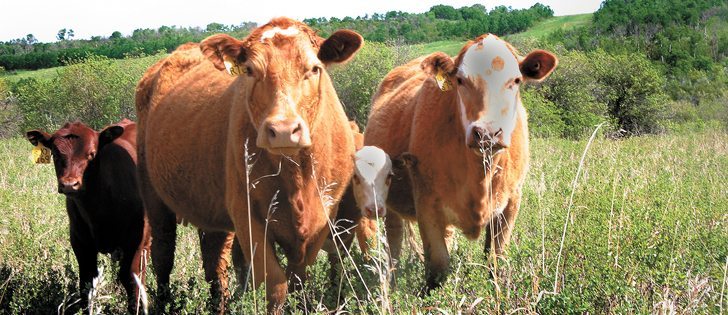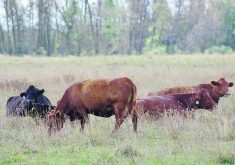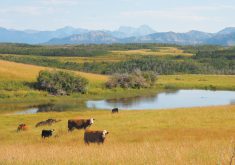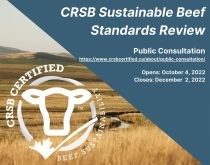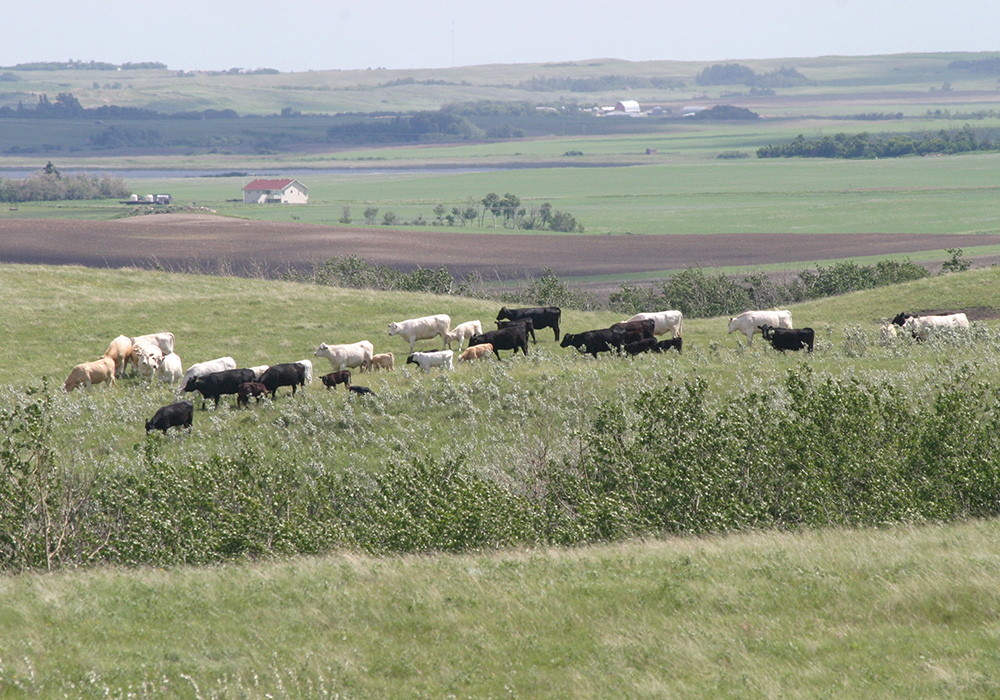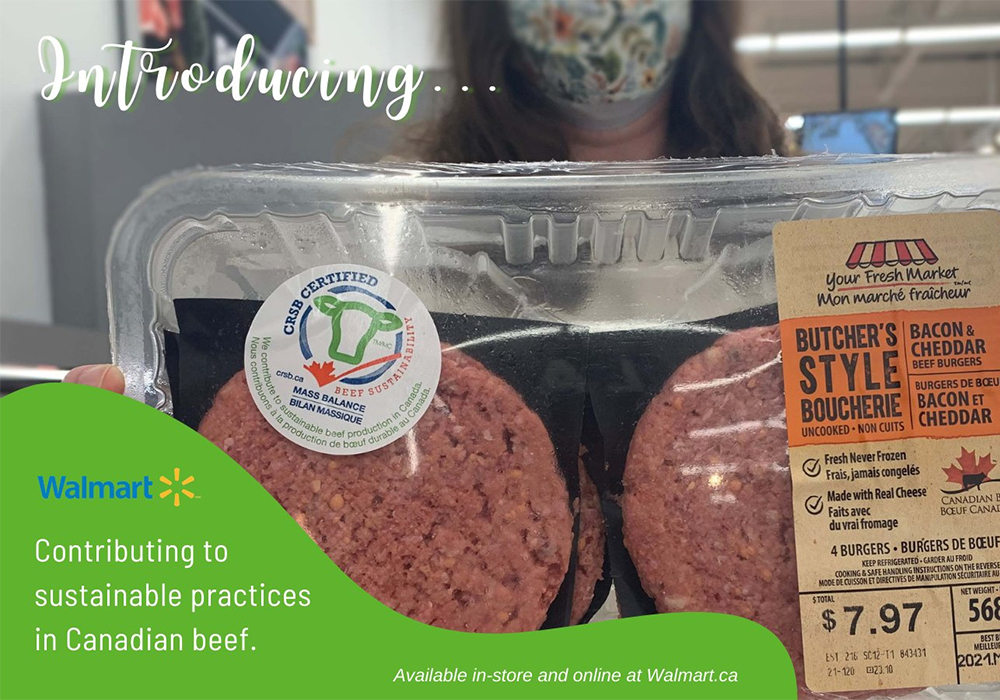Cow-calf ranchers say the verified sustainable certification could attract customers and increase market share
The work to feed sustainably raised beef to the world is just beginning.
A pilot project to see if a major burger company such as McDonald’s Corp. could deliver sustainably raised beef is complete, and the results show it can be done.
Results and recommendations were presented in Calgary June 2 and have been forwarded to the Canadian Roundtable on Sustainable Beef, which is developing a full fledged program to verify beef production.
Canadian cow-calf ranches, feedlots and processors participated in the two-year project, in which operations volunteered to allow private verifiers to assess how they treat their cattle, the environment, workers and the community.
Read Also

Beef check-off collection system aligns across the country
A single and aligned check-off collection system based on where producers live makes the system equal said Chad Ross, Saskatchewan Cattle Association chair.
High marks went to the ranchers for animal care, community outreach and environmental stewardship, but many fell short on record keeping. More work also needs to be done on the use of antibiotics.
Many feedlots are not using the verified beef program, but they have other programs to monitor pharmaceuticals and manage food safety.
Feedlots scored well in most areas, and the two packers, Cargill Meat Solutions and JBS Canada, had excellent results.
Each operation was scored on a scale of one to five with five being excellent. Most scored a three or better in cattle and environmental care, but many fell short on record keeping and participating in the food safety program, verified beef production and the Beef Information Exchange.
Many said they did not see how value might be returned to them by participating in those programs, but this pilot project did convince some of their worth.
Participants received a benchmark report on industry averages as well as where they placed as individuals, said Leanne Saunders of Where Food Comes from, the company that guided the process.
Verifiers noted a strong commitment among producers to support the community, protect grasslands and water and focus on low stress handling and genetically improving their cattle.
Sustainability factors were divided into five areas:
- Natural resources — This shows how they protect soil health, water supply and wildlife and encourage plant biodiversity.
- People and community — This indicates how they ensure a safe work place and support the local community.
- Animal health and welfare — Producers demonstrated how they provided adequate feed and drinking water and minimized animal stress and pain.
- Food — This includes training and registration in the on farm food safety program, Verified Beef Production.
- Efficiency and innovation — This could be recycling and incorporating energy efficiency programs.
John and Tracy Buckley, who ranch near Cochrane, Alta., agreed to get involved early and found the experience positive.
“It was adult show and tell,” John Buckley said in an interview.
Two audit teams arrived in March 2015, but the indicators were still in draft form.
“We were working our way through the process together. They had an idea of what they wanted to see. It was a conversation,” he said.
Buckley had no concerns about showing off the ranch but admitted some of his documentation was not available and there is room for improvement.
“I saw this as a huge opportunity for us to have a conversation with somebody that is coming at it from a totally different perspective.”
Buckley liked the collaborative approach rather than a company making announcements about what they expect from farmers.
“McDonald’s says we have an issue that we need to address and how do we address it? They came to the industry and said, ‘how do we get here,’ ” he said.
The corporation said it decided to test its sustainability ideas in Canada because co-ordinated programs were already in place such as food safety and animal identification.
Andrew Brazier of McDonald’s corporate head office came from a mixed farm in Australia where sheep and beef cattle were present, but he understands why Canada was selected to test the concept.
The genesis of this came from the global roundtable on sustainable beef.
“It has helped define principles and criteria that are applicable for local adaptation, and it doesn’t matter if you are a feedlotter in Canada or a grass-fed operator in Queensland, Australia,” he said.
No marketing plan has been developed yet, although many have said a logo or trademark indicating sustainability is needed.
“This effort needs to resonate with consumers,” Brazier said.
Farmers also need to get something out of it to increase demand for beef, and consumers need assurances about sustainable production practices.
The Rainforest Alliance Certified logo uses a little green frog, and Francesca DeBiase of the McDonald’s sustainability division said she would like a similar trademark for the beef sector.
Such a logo would attract customers who have changed attitudes about food production and want to know how it’s made. They trust academics, non-governmental organizations and farmers but not necessarily large corporations.
“They want to buy products from people who share their values,” she said.
Canadian ranchers were approached early on to see how they could become partners, create a definition for sustainable beef and figure out how to show the world how a verified system might work.
“We wanted to find a place where people wanted to work collaboratively,” DeBiase said.
“That is really important to us.”
Southern Alberta rancher Bob Lowe was skeptical at first but now supports the concept.
“McDonald’s is giving Canada a huge opportunity to lead the world and define sustainability globally,” he said. “If folks don’t want our product or want it under certain conditions that can’t be met by harming something else, it is not sustainable and eventually we will lose the industry.”
The company wants to build support for the industry rather than tolerate cattle production because people like to eat steak, said Jeffrey Fitzpatrick-Stilwell of McDonald’s.
“Transparency is important, and it is really that social license to operate,” he said.
The results of this program show good practices can be proved and traced from farm to fork no matter the size of the farm or the processor, said Emily Murray of the Cargill plant at St. Albert, Alta. where McDonald’s beef patties are manufactured.
“It really reinforces that sustain-ability is scalable and it demonstrates the power and ability of the system,” she said.
The pilot results included recommendations to the Canadian Round Table on Sustainable Beef, including that it work with as many people as possible and provide continuous feedback.




